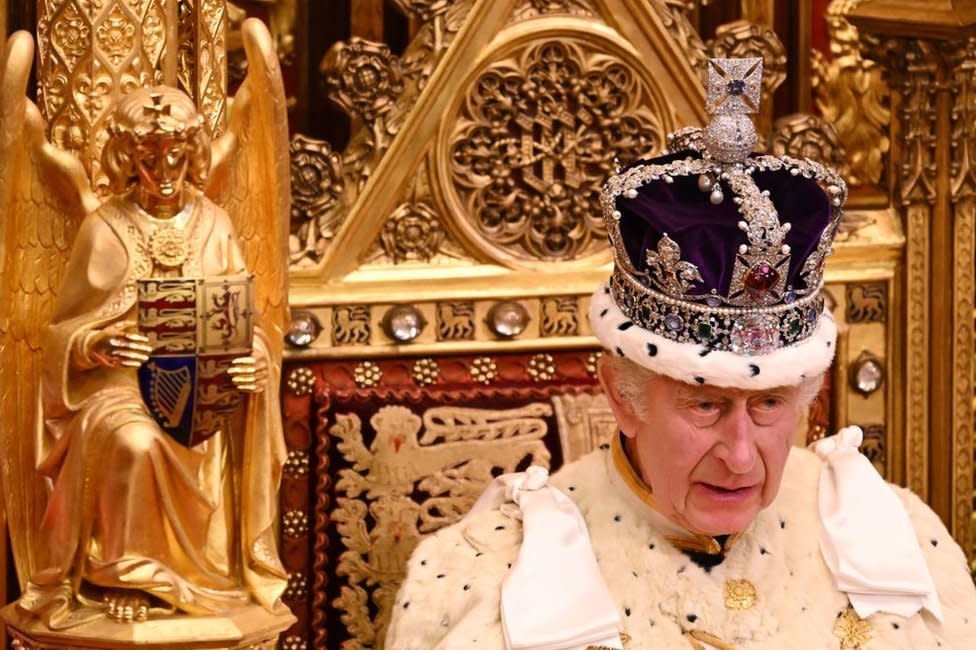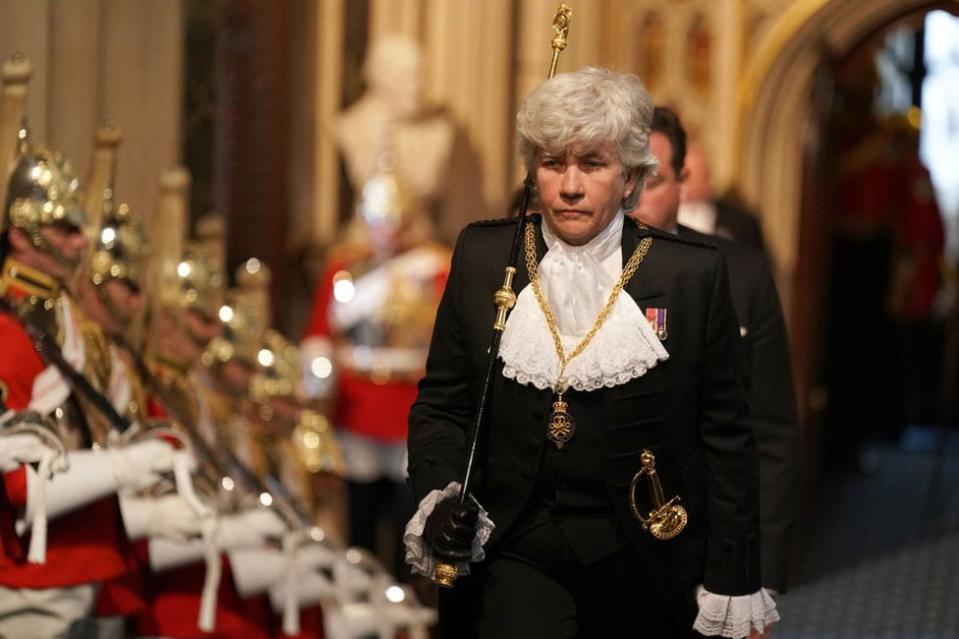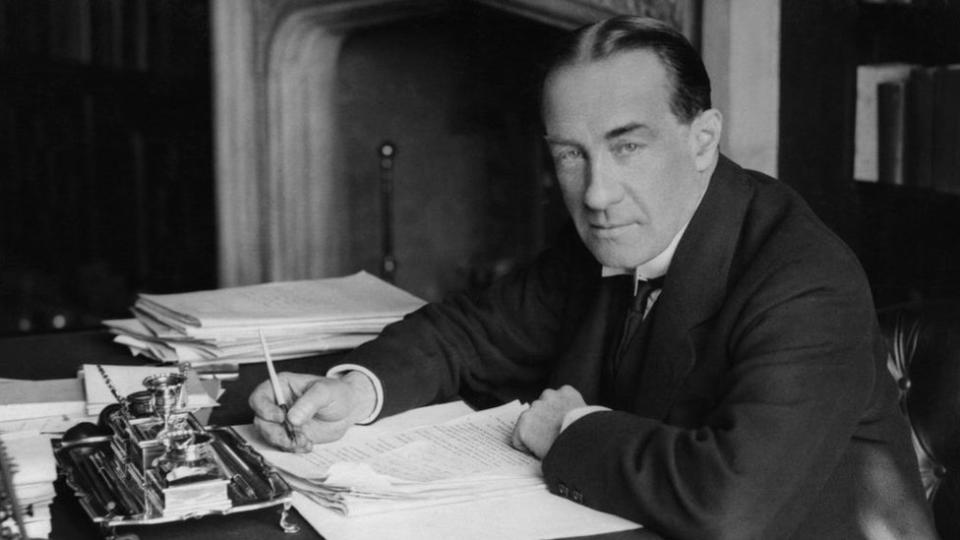King's Speech: What is it and why is it important?

King Charles will deliver the King's Speech on 17 July as part of the State Opening of Parliament.
Parliament will sit for the first time after the 4 July general election on 9 July, when it will elect the House of Commons Speaker and swear in the newly-elected MPs.
What is the King's Speech?
The King's Speech provides the government with an opportunity to outline its priorities for the months ahead.
Formally called the Speech from the Throne, it is a key part of the State Opening of Parliament ceremony, which marks the start of the parliamentary year.
Who writes the King's Speech?
The speech is written by the government.
Its length depends on the number of proposed laws and other announcements - such as foreign-policy objectives - but it normally lasts about 10 minutes.
The monarch delivers the speech in a neutral tone, to avoid any appearance of political support.
What happens during the speech?
Traditionally, the State Opening begins with a procession in which the King travels from Buckingham Palace to Westminster by carriage.
On arrival, he uses the Sovereign's Entrance, reserved for the monarch.
The King then processes to the throne in the House of Lords.
MPs are summoned to the Lords by Black Rod, an official position currently held by Sarah Clarke.

Before entering the House of Commons, Black Rod has the door shut in their face, symbolising the chamber's independence from the monarchy.
The speech sets out the laws the government wants to get through Parliament in the coming year.
MPs, peers and other dignitaries in the House of Lords generally listen in silence.
Traditionally, the government MP holding the position of vice-chamberlain of the household is "held hostage" in Buckingham Palace while the King is in Parliament, to ensure the monarch's safe return.
Is there a vote on the King's Speech?
Yes.
About two hours after the speech is delivered, MPs reassemble in the House of Commons to begin debating its contents.
After introductory speeches by two MPs, the prime minister will "sell" the speech to the Commons, setting out a vision for the country.
The leader of the opposition then gets the chance to respond, before other MPs are allowed to contribute.

The debate on what is known as "the Humble Address" normally lasts about five days.
At the end of the debate there is a vote. It's normally seen as symbolic, as it is extremely rare for a government to lose it.
In fact, the last time a government lost the vote was in January 1924, under Conservative Prime Minister Stanley Baldwin.
Mr Baldwin proceeded with a King's Speech - George V was the monarch at the time - despite having lost his majority in the previous month's general election.
He was forced to resign, and Labour formed a short-lived government in his place.
What was in the 2023 King's Speech?
The speech outlined 21 laws that ministers intended to pass in the 2023 Parliamentary session.
Around a third had been carried over from the previous session, or previously published in some form.
They included plans to boost investment in transport, laws to stop people smoking, and tougher sentences for serious offenders.


